As Napoleon almost became a Russian ensign
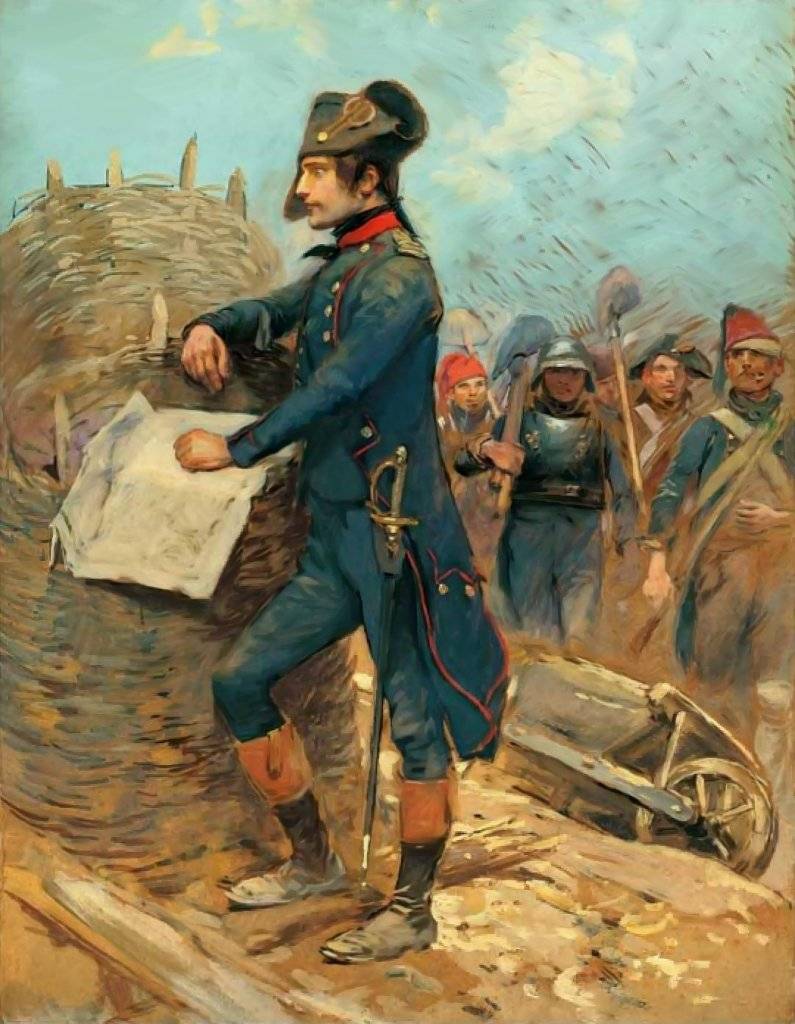
In August, 1787, the next Russian-Turkish war began. This time it was caused by the desire of the Ottoman Empire to regain control of the Crimean Khanate and Georgia, which it had lost as a result of previous wars. Sultan hoped that this time he would be able to take revenge, especially since the Ottoman Empire promised diplomatic support to England, France and Prussia. On the side of Russia, in turn, stood the Holy Roman Empire. The war promised to be long and sluggish, since, as the Russian troops on the border were not sufficiently numerous and prepared for an offensive operation, the Turkish army was not distinguished by good training and armament. Russia did not refuse the previous strategy to recruit foreign military specialists - officers from the European armies.
At that time, a fairly large number of officers came to Russian service from almost all parts of Europe. The vector of the acceptance of foreigners into Russian military service was set by Peter the Great, although before him there were examples of invitations of foreign military specialists and hired soldiers. But the maximum number of foreign officers served in the Russian service at the end of the XNUMXth century. Catherine II continued the policy of Peter I in this matter, trying to provide the Russian imperial army with the most qualified and trained personnel. German, French, Spanish, English army officers and fleet in large numbers began to come to the Russian Empire and enter the sovereign service. They paid well in the Russian service, especially for real specialists, and it was interesting for many officers to visit distant and mysterious Russia. The officers of the Catherine’s army and navy made a huge contribution to strengthening the defense capability of the Russian state, managing territories, and developing the economy and industry. Subsequently, they proved themselves not only in military service, but also in various fields of public activity.
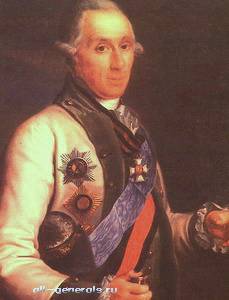
Back in the middle of the 1760s, for example, a British naval officer, a Scot of Samuel Greig, entered the service of Russia. In the British royal navy, he had the rank of lieutenant, but in Russia he quickly made a good career and in the 1764 year, at the 29 age, he was promoted to captain of the 1 rank. After winning the Battle of Chios in 1770, he received an admiral rank, later rising to the position of commander of the Baltic Fleet. In the 1788 year, in the year of the death of Greig, another Scot became a Russian service - the British fleet lieutenant Robert Crone, who was also destined to advance to the rank of admiral and become one of the eminent Russian naval commanders.
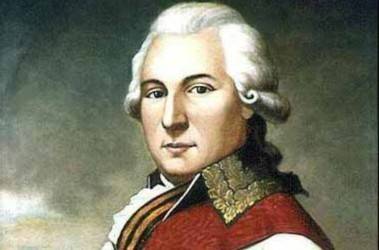 From the Neapolitan Kingdom arrived at the Russian service major of the Neapolitan Guard Jose de Ribas. In 1774, he was accepted into the Russian service with the rank of captain - with a decrease of one rank, which was mandatory for foreign officers who entered the Russian army. Subsequently, José de Ribas participated in the Russian-Turkish wars, received the rank of brigadier in 1787, and then transferred to the fleet, where in the year 1793 received the rank of vice admiral. Jose de Ribas is the legendary Deribas, the founder of Odessa and the port of Odessa.
From the Neapolitan Kingdom arrived at the Russian service major of the Neapolitan Guard Jose de Ribas. In 1774, he was accepted into the Russian service with the rank of captain - with a decrease of one rank, which was mandatory for foreign officers who entered the Russian army. Subsequently, José de Ribas participated in the Russian-Turkish wars, received the rank of brigadier in 1787, and then transferred to the fleet, where in the year 1793 received the rank of vice admiral. Jose de Ribas is the legendary Deribas, the founder of Odessa and the port of Odessa. Franz de Livron, a Swiss by birth, who served as a midshipman in the Austrian navy, also entered the Russian service in 1788 and made a good career in the Russian navy. He was promoted to the post of commander of the 2 th brigade of the lastovy crews of the Baltic Fleet, was promoted to major general (at that time he was assigned to officers of the navy).
French Colonel Alexander Langeron (on the image) was lucky - he was accepted into the Russian service in the same rank in 1789, and in the Russian Empire he made a career that was dizzying for a foreign émigré, The chief of the Riga infantry regiment.
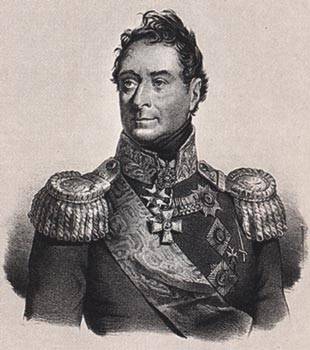
In 1788, Spanish military engineer José Ramon de Urrutia was enlisted in the Russian service, by this time he had the rank of brigadier and thirty-three years of military service and was considered a very competent specialist in fortifications. He participated in the Russian-Turkish war, showed great heroism, but did not remain in Russia and returned to Spain, where he served as captain-general and member of the military council.
This is only an incomplete list of famous foreign army and navy officers who entered the Russian service in the second half of the 18th century. In fact, hundreds of foreign officers served in the Russian army, most of which were officers of Greek origin. Russian-Turkish war 1787-1791 in general attracted a lot of volunteers - officers from European countries who considered it their duty to help Christian Russia in the fight against the Ottoman Empire. That is, they were moved not only and not so much by career ones (after all, the majority were enlisted to serve in the rank lower than they served in previous armies), but rather ideological considerations.
In 1788, lieutenant-general Ivan Alexandrovich Zaborovsky arrived in Livorno. He was a prominent statesman - governor in Tula, then the Vladimir and Kostroma governor-general, but went to Europe for military affairs, not managerial. The Empress commissioned Ivan Zaborovsky to organize another recruitment of foreign officers as volunteers to participate in the Russian-Turkish war. The emphasis was placed on officers from the countries of Southern Europe, since there were long traditions of war with the Ottoman Empire. Especially wanted to see in the Russian service militant Greek, Albanian and Corsican volunteers, known for their military skills and valor.
28 September 1785 was graduated from the Parisian military school by a young Corsican nobleman Napoleon Buonaparte, the son of a court assessor, who decided not to follow his father’s path, but to become a professional soldier. Napoleon was educated first in the cadet school in Brienne-le-Château, where he studied in 1779-1784. and showed great mathematical ability, and then - in the Paris Military School, where, as a good mathematician, he specialized in artillery.
3 November 1785, a month after graduating from military school, junior artillery lieutenant Napoleon Bonaparte began to serve in the artillery regiment de la Fer, stationed in Valance, in south-east France. However, the beginning of the service for a young officer was not very successful. At this time, the financial affairs of the family in Corsica did not go very well. Even 24 February, 1785, Napoleon’s father, Carlo Buonaparte, died, and the debt for a government grant allocated to him to set up a mulberry nursery hung on his family.
Napoleon, as a more active and enterprising young man, than his elder brother Joseph, assumed the duties of head of the family and was forced to go home, asking for leave in the service. Subsequently, he extended the vacation twice more. Naturally, such a circumstance did not contribute to a successful career - what kind of officer, who is constantly absent from the duty station. Yes, and the “hairy paw”, as they would say now, the young Corsican did not have - no one promoted him, and Napoleon would most likely continue to serve in junior or middle officer positions until retirement, at best completing his service as a major.
Only in June 1788, two and a half years later, did Napoleon Buonaparte return to military service in the regiment, which by this time was transferred to Ausons, in eastern France. Since Napoleon’s mother, who had become a widow, lived in poverty, the young officer was forced to send her a portion of his salary - already insignificant, which made him literally live from hand to mouth. Poverty and the seeming lack of prospects prompted the young and ambitious French lieutenant to arrest a petition for admission to the Russian imperial army. Participation in the Russian-Turkish war to foreign officers was well paid and Napoleon expected to earn a sufficient amount.
However, shortly before Junior Lieutenant Bonaparte applied to the Russian army, the Russian government issued a decree that foreign officers entering the Russian imperial army would receive a military rank one step lower than the one in which they served in the former service. With this young, but very ambitious artillery junior lieutenant could not accept. What else is he, Bonaparte, let him serve in a rank lower than he received at the Paris military school itself? Ambitious and purposeful, Napoleon achieved a personal audience with Lieutenant-General Ivan Zaborovsky, who led a special commission to recruit volunteers.
But the meeting with the general of the Russian army did not bring the desired result - Ivan Zaborovsky could not understand why he should make an exception for some young and unknown to you artillery junior lieutenant who only recently began his army service. Well, it would be a honored colonel or a general, but a lieutenant? Frustrated, Bonaparte, not having achieved his own, literally ran out of Zaborovsky's office, leaving behind the move - “I will go to the Prussian army. The king of Prussia will give me a captain! ”
So ended the attempt of Napoleon Bonaparte to become a Russian officer. But Napoleon did not go to serve in the Prussian army either - most likely, this phrase was thrown in the hearts, out of a desire to hurt the Russian general, who did not accept him to serve in the proper rank.
Napoleon returned to his artillery regiment, and soon the Great French Revolution took place. But at the beginning of Napoleon’s career, large-scale political events had not yet had an effect. He continued to serve as a junior lieutenant in an artillery regiment. Only in June 1791, Napoleon Bonaparte was promoted to lieutenant of artillery. Thus, in the rank of junior lieutenant, he served for six years after graduating from the Paris Military School - not a good start for a professional military. However, the rapid revolutionary events still played a role in the further career growth of an artillery officer.
In August, 1791, Napoleon sought leave on Corsica, where he joined the National Guard. Since there were few personnel officers in Corsica, the artillery lieutenant was immediately elected lieutenant colonel of the National Guard. But when Napoleon returned to Paris 1792 in May, the military ministry refused to confirm to him such a rapid jump in ranks and made the lieutenant - "lieutenant colonel" to the captains. Which was not bad either, considering the duration of the previous gap between the ranks in Napoleon’s career. In October, 1793, Captain Bonaparte, was promoted to majors and appointed commander of the battalion, and after a brilliant operation to capture Toulon, during which he commanded artillery, 24-year-old Major Bonaparte was made a brigadier general. It turned out that the path from junior lieutenant to lieutenant Napoleon passed in six years, and it took him only two years to go as a lieutenant to general.
Interestingly, a distant relative and, as happens in Corsica, Napoleon’s fierce enemy, Count Charles-Andre Pozzo di Borgo, who was only five years older than Bonaparte, in 1804 a year, many years after trying his enemy to become a Russian officer, did to the Russian service, but not to the military, but to the diplomatic service. The notable Corsican was envoy in Vienna and Naples, in the Ottoman Empire, then ambassador to Paris and London. The ranks of him were assigned to the military, so in the end Pozzo di Borgo reached the rank of General of Infantry (the title was awarded in 1829 year) and the adjutant general.
It is not known what kind of military career Napoleon could have made in the Russian Empire, then he agreed to enter the Russian service. Given his personal and professional qualities, it is possible that he would become a general in the Russian service, like other foreign volunteers - Alexander Langeron, Jose de Ribas or Franz de Livron. But then he would not have become Napoleon, who conquered the whole of Europe. And how the history of Russia, Europe and the world as a whole would develop if it were not for the 1812 World War II of the year, it is also unknown. Although it is possible that a man like Napoleon, if he got into the Russian service, he would have been among the conspirators. Who knows, maybe he would be lucky.
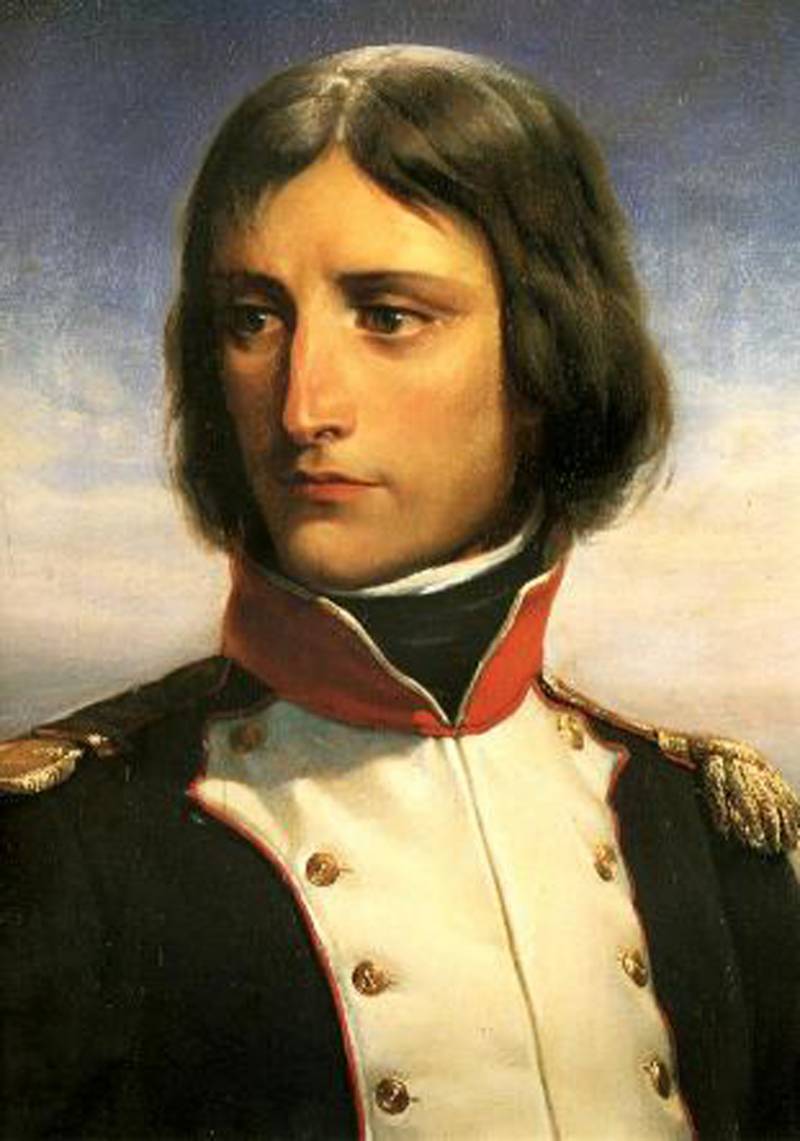
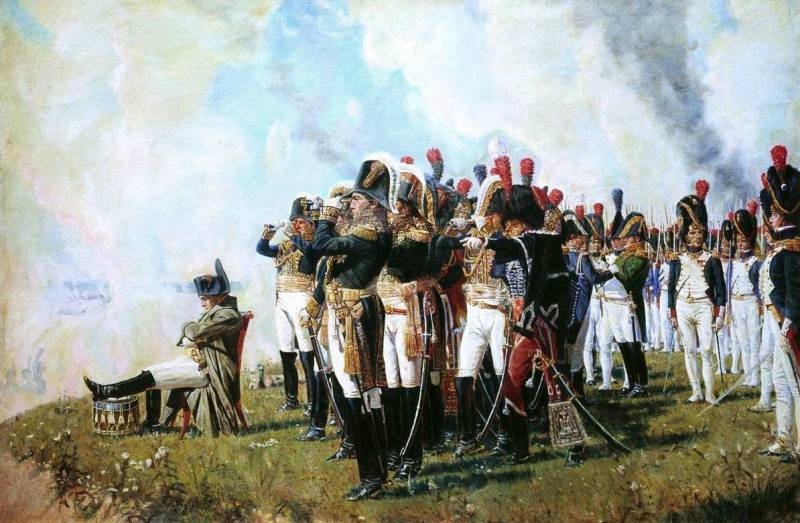
Information